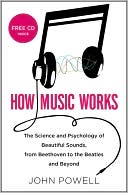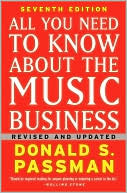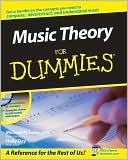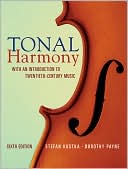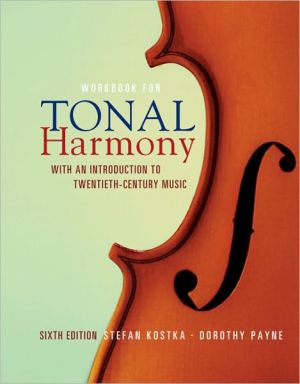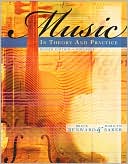The Music Of The Spheres; Music, Science, And The Natural Order Of The Universe
For centuries, scientists and philosophers believed that the universe was a stately, ordered mechanism, both mathematical and musical. The perceived distances between objects in the sky mirrored (and were mirrored by) the spaces between notes forming chords and scales. The smooth operation of the cosmos created a divine harmony that composers sought to capture and express. Jamie James allows readers to see how this scientific philosophy emerged, how it was shattered by changing views of the...
Search in google:
The parallel histories of music and science - from celestial harmony to cosmic dissonance. For centuries, scientists and philosophers believed that the universe was a stately, ordered mechanism, mathematical and musical. The perceived distances between objects in the sky mirrored (and were mirrored by) the spaces between notes that formed chords and scales. The smooth operation of the cosmos created a divine harmony that composers sought to capture. With The Music of the Spheres, readers will see how this scientific philosophy emerged, how it was shattered by changing views of the universe and the rise of Romanticism, and to what extent it survives today. From Pythagoras to Newton, Bach to Beethoven, and on into the twentieth century of Einstein, Schoenberg, Stravinsky, Cage, and Glass, this is a spellbinding examination of the interwoven fates of science and music throughout history. Publishers Weekly From Pythagoras onward, music was perceived as a mirror of cosmic harmony and of the Supreme Intelligence believed to pervade the universe. But 19th-century Romantic composers, in James's view, were deaf to the music of the spheres, and created instead an aberrant music of exaggerated emotional appeal. James, who writes on science and music for Discover and Connoisseur, contends that the works of Bach, Mozart, Schubert and Schonberg embody a belief in a sublime cosmic order that Beethoven overturned. This bold, pathbreaking history explains how the ancient tradition of music as a branch of divine science has found support from Plato through Kepler, Sir Isaac Newton (an alchemist and self-professed Pythagorean) to Galileo, Freemasonry and the esoteric experiments of today's avant-garde composers. A provocative, engaging reassessment of the Western musical tradition and its relation to science. Illustrated. (Apr.)
List of IllustrationsPreface1The Great Theme32Pythagoras, the Master203Plato and the World Soul414"The Key to the Universe"605The Renaissance Musici796The Music of the Spheres and the Birth of the opera987The Hermetic Tradition1148Kepler Pythagorizes1409Newton and The Magic Flute15910The Romantic Anomaly18011Schoenberg and the Revival of the Great Theme21212Into the Future229Bibliography243Index249
\ Publishers Weekly\ - Publisher's Weekly\ From Pythagoras onward, music was perceived as a mirror of cosmic harmony and of the Supreme Intelligence believed to pervade the universe. But 19th-century Romantic composers, in James's view, were deaf to the music of the spheres, and created instead an aberrant music of exaggerated emotional appeal. James, who writes on science and music for Discover and Connoisseur, contends that the works of Bach, Mozart, Schubert and Schonberg embody a belief in a sublime cosmic order that Beethoven overturned. This bold, pathbreaking history explains how the ancient tradition of music as a branch of divine science has found support from Plato through Kepler, Sir Isaac Newton (an alchemist and self-professed Pythagorean) to Galileo, Freemasonry and the esoteric experiments of today's avant-garde composers. A provocative, engaging reassessment of the Western musical tradition and its relation to science. Illustrated. (Apr.)\ \ \ \ \ Library JournalThe Music of the Spheres is a truly interdisciplinary book, as much science as music. The book begins with Pythagoras, who some consider both the first scientist and one of the first to study music in a disciplined fashion. Pythagoras described the heavens as seven spheres, one nestled in the next, each supporting a known planet, with the sun as the innermost sphere. This perfect system both produced and was music; the music of the spheres was celestial harmony. Pythagoras used mathematical principles to study nature, the heavens, and music, showing that they could be studied in the same way. Science writer James traces the development of science and music from antiquity through the Middle Ages, the Renaissance (including Kepler's well-described cosmology), and the present. He discusses how developments in music and science paralleled one another, overlapped, and in general reflected the position of humanity in the universe. While this book is aimed at general audiences, some familiarity with the history of music is helpful. For interdisciplinary collections.-- Eric D. Albright, Galter Health Sciences Lib., Northwestern Univ., Chicago\ \

